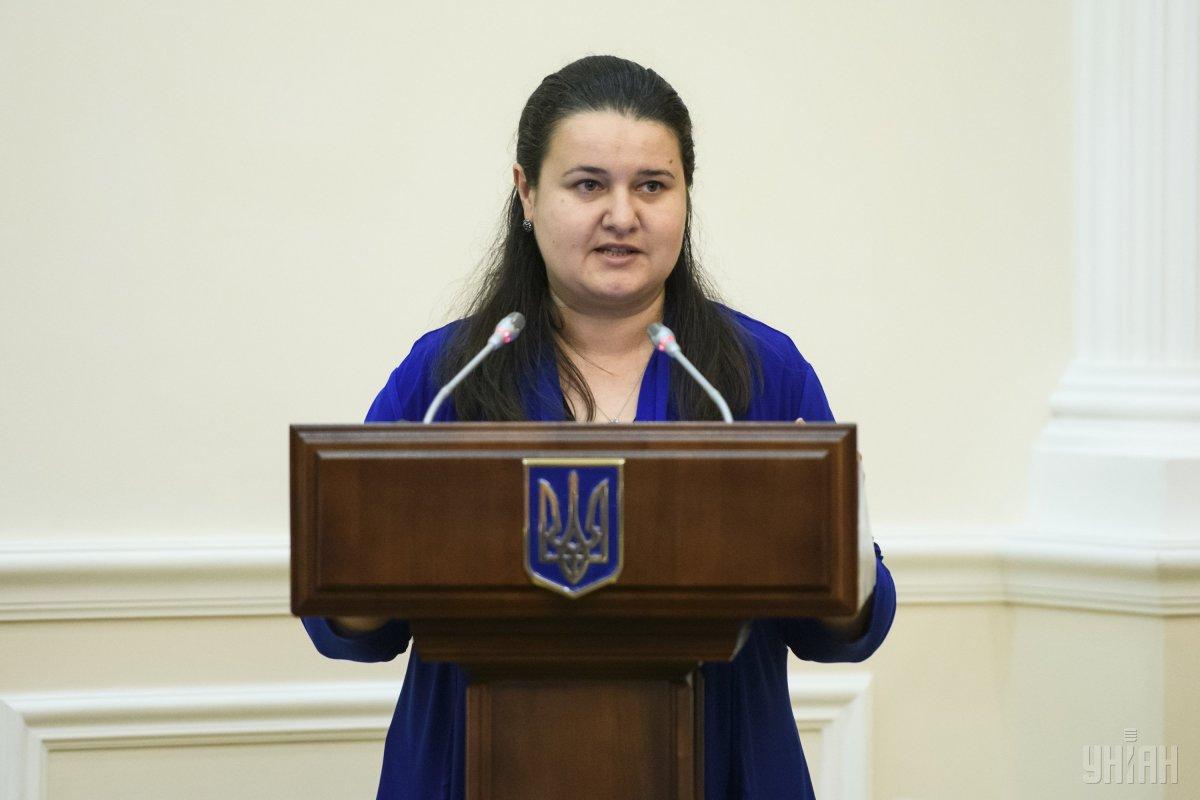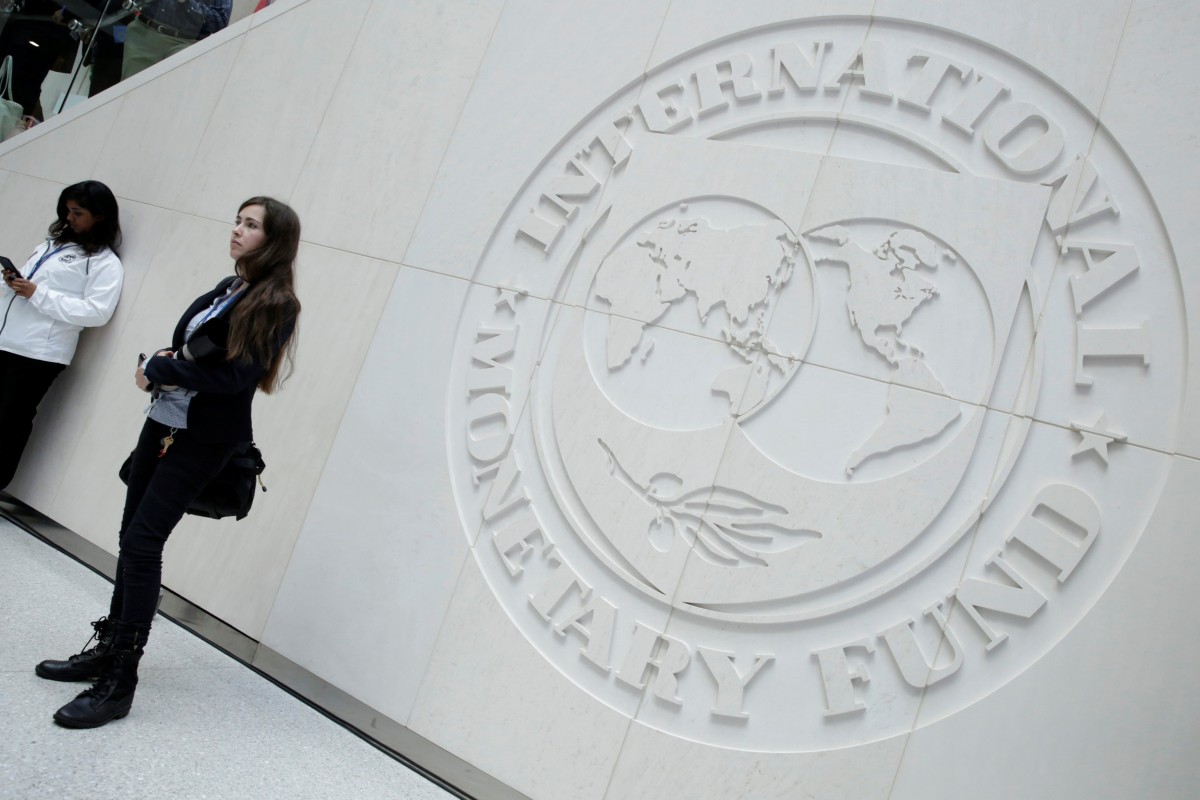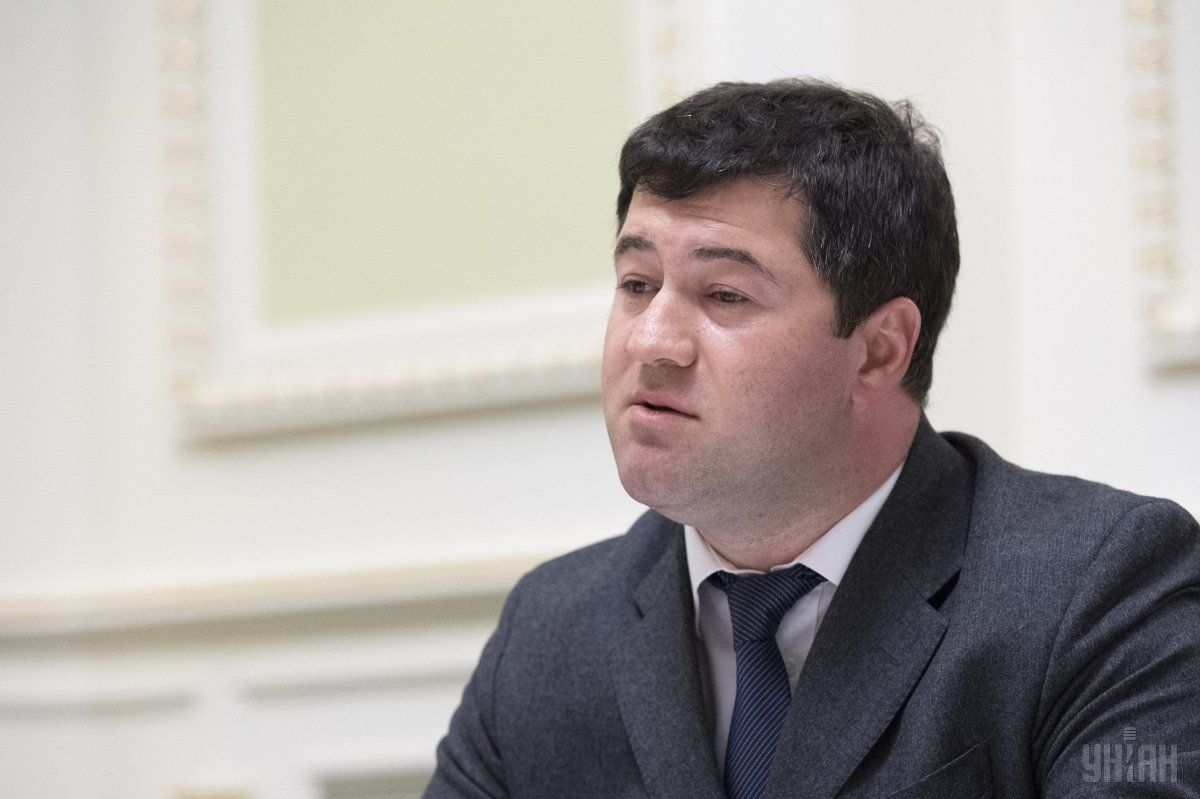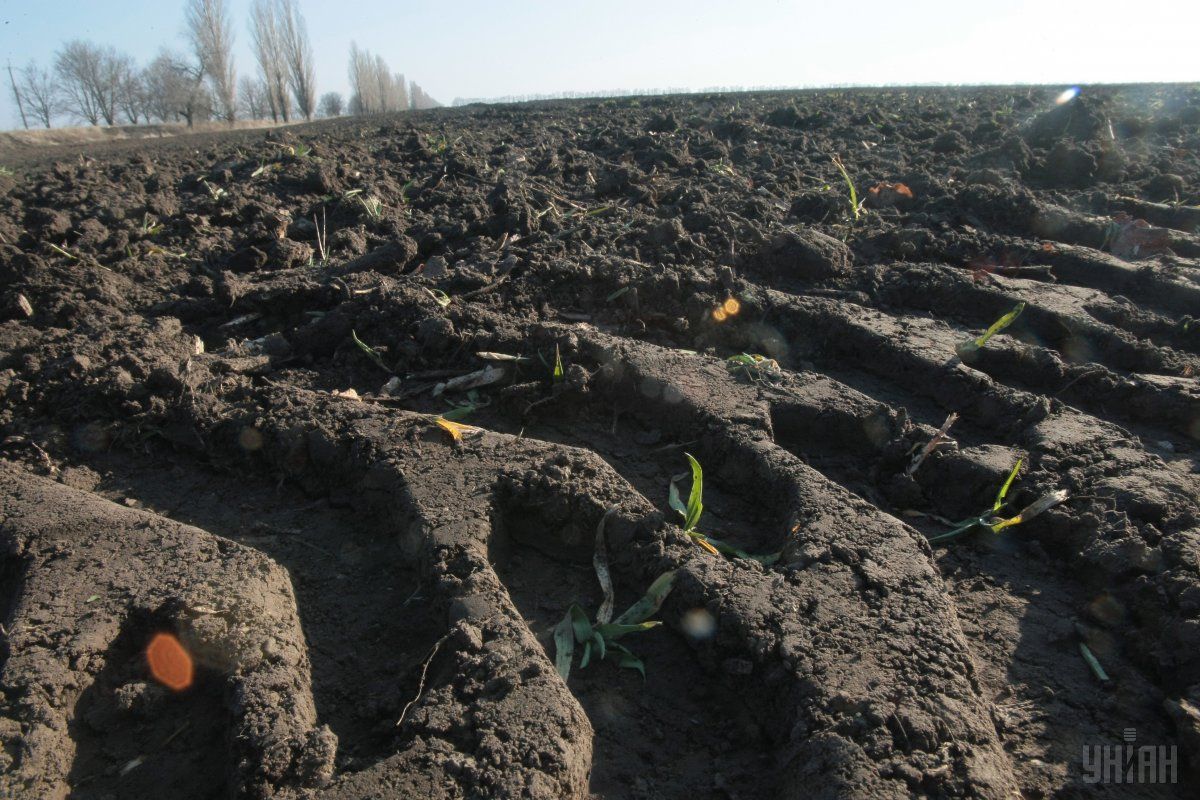
Week's balance: New IMF requirements and long-awaited tranche, Fiscal Service unbundling, and "disgraceful" moratorium on farmland sale
Ukraine's main creditor, the IMF, set new demands on reforms and even allocated an incentive tranche in the amount of $1.4 billion; the authorities go for a large-scale reshuffle in the Fiscal Service structure; and MPs once again chose to prolong the moratorium on farmland sale to avoid speculation ahead of the presidential election.
A major Christmas present came from the International Monetary Fund which adopted a new program of economic support for Ukraine in the amount of $3.9 billion. To say that the tranche was long-awaited is to say nothing, given that it is 2019 that will be the peak period of the settlement with external creditors. In total, the country will have to repay $9.1 billion of foreign currency borrowings, and the first large payments are scheduled for February.
The situation around the continuation of vital cooperation with the Fund has been heating up for a whole year - akin to the reluctance of the Ukrainian government in raising the price of gas for the households. That was the key condition for the IMF to start a new program. Prime Minister Volodymyr Groysman has long been delaying the move, apparently, on the eve of the elections fearing the indignation of the electorate. However, unpopular decisions are much better than default, which the country would face without IMF money. Therefore, the conditions of the lender had to be met.
On the evening of December 18, it became known that the IMF Executive Board approved a new program of cooperation with Ukraine, and the very next day the Ministry of Finance confirmed that the first tranche worth $1.4 billion would go to the National Bank’s accounts before December 25 (the money was received on December 21). Another important creditor, the World Bank, instantly caught up. It approved the provision of financial guarantees worth $750 million. According to the bank's expectations, this will help attract about $1 billion to the state budget on international markets.
“The IMF is an anchor creditor for other official creditors of Ukraine, who are already giving us loans on special conditions that are not available on the market. The funds are already flowing into the budget of Ukraine and helping us ensure macro-financial stability – and this is especially important on the eve of a difficult election year,” Finance Minister Oksana Markarova commented on recent events.

The president's move to introduce martial law in 10 regions of Ukraine did not affect IMF's approval of the 14-month stand-by program for Ukraine as the country has fulfilled preliminary conditions for its start by adopting a balanced budget and carried out energy reform, increasing the price of gas for the households, bringing it closer to market parity.
According to the head of the Ministry of Finance, the support of the IMF and the World Bank allows Ukraine to confidently pass through 2019 and continue implementing reforms.
Meanwhile, the forecast of the International Monetary Fund for Ukraine's economy published in the outgoing week turned out to be not too optimistic. The IMF has worsened its estimate of GDP growth in 2018 to 3.3% from the 3.5% previously projected. The IMF also raised its forecast for the average annual inflation rate to 11% from 10.9% in 2018 and to 9.2% from 7.3% in 2019. The growth rates of real GDP remain, as in the previous report of the Fund, rather disappointing – at the level of 2.7%.
It is worth recalling that, according to the First Deputy Prime Minister - Minister of Economic Development and Trade, Stepan Kubiv, the quality of life in Ukraine will noticeably improve when the annual growth of the economy is about 5-7%. But to this end, the Deputy Prime Minister specified, it is necessary to continue key reforms.
IMF demands

The International Monetary Fund on December 20 unveiled the text of a Memorandum on Economic and Financial Policies under the new stand-by program for Ukraine.
In terms of the monetary sphere, according to the document, the NBU should adhere to a flexible exchange rate policy, and inflation should not exceed 7% from December 2018 to December 2019, and 5% +/- 1% in 2020.
During the execution of the program, Ukraine is prohibited from conducting a tax amnesty, but this restriction does not deny the possibility of a future campaign for a one-time declaration of the assets of individuals, subject to prior approval of its conditions and justification of goals with IMF experts.
In addition, Ukraine is prohibited from introducing new tax incentives and reducing corporate income tax rates. It shall not introduce the second level of the pension system. At the same time, the country will continue the dialogue with the IMF experts on finding the possibility of imposing an exit capital tax in the form of a fiscal-neutral, balanced and stable model of taxation of distributed profits.
In the field of public finance management, it is planned to introduce measures envisaged under the Strategy for Reforming the Public Finance Management System for 2017-2021, in particular, the introduction of medium-term budget planning from 2019 inclusive with cost reviews and definition of clear marginal costs and expenditure limits.
With regard to the increase in gas tariffs, Ukraine shall adhere to the previously adopted plan to bring the price of gas to a market level. Among the "energy" requirements, there is the unbundling of Naftogaz and the increase in gas production.
In terms of financial policies, Ukraine is expected to further improve the stability of the banking system, thanks to the capitalization of banks, the improvement of the regulatory framework for transactions of related persons, the restoration of the solvency of the Individual Deposits Guarantee Fund until the end of December 2019, and the resolution of the problem of non-performing loans.
At the end of March 2019, according to the IMF demands, independent supervisory boards should be appointed in the state banks - Oschadbank and Ukreximbank. By the end of April 2019, the Ministry of Finance will sign memorandums of understanding with each of the state-owned banks, and the European Bank for Reconstruction and Development (EBRD) and the International Finance Corporation (IFC) are expected to enter the capital of Oschadbank and Ukrgasbank.
The memorandum implies the launch of the High Anti-Corruption Court. By the end of April 2019, 35 anti-corruption judges should be appointed. An independent audit of the National Anti-corruption Bureau should also be conducted.
As for privatization, the Memorandum provides for the sale in the first half of 2019 of Centrenergo, the coal company Krasnolymanska, Indar company, and President Hotel (Kyiv).
Transformation of State Fiscal Service
On Tuesday, during a closed-doors part of its meeting, the government decided to divide the Fiscal Service into customs and tax service (which will include tax police units). As it became known a little later, the reform of this body is one of the points of the IMF Memorandum. According to the document, both new agencies will exist as separate central executive bodies and will be accountable to the Ministry of Finance. A special commission will be created to reorganize the SFS, which will be headed by Markarova’s deputy, Serhiy Verlanov. The text of the government’s decision is not available on the official website, and it was probably taken in haste due to the need to have it signed ahead of the meeting of the International Monetary Fund's Executive Board.
In fact, nothing fundamentally new happened, because until 2012, the State Tax and State Customs Services already existed in Ukraine. However, during the cadence of the runaway President Yanukovych, both bodies decided to merge into a single agency - the Ministry of Revenue and Duties. It was led by the notorious Oleksandr Klymenko, who, after the removal of Yanukovych’s team from power, fled from Ukraine and was put on a wanted list on corruption charges.
According to the expectations of the Ministry of Finance, after the reform, the transparency of the tax management system will improve by an order of magnitude, while taxpayers will be able to breathe a sigh of relief, since the pressure will be lower.
Perhaps there is another goal that has not been heard on a public plane – the Cabinet of Ministers intends to “clean up” the staff of the still functioning state structure in this way. And this is very timely, considering that the recent decision of the court to reinstate as the head of the SFS a notorious official, Roman Nasirov.

Roman Marchenko, a senior partner at the law firm “Ilyashev & Partners” believes that the decision of the court to restore Nasirov now does not make sense because it will not apply to new legal structures that will arise as a result of the transformation of the body. Accordingly, Nasirov will not succeed in taking the post of head of one of the services. In addition, according to the terms of the Memorandum with the IMF, a competition for the heads of the State Tax and State Customs Services will be held within three months after the approval of the resolution of the Cabinet of Ministers. The complete separation of the “fiscal monster” should be completed before the end of April 2019.
Freeze on farmland sale

In the outgoing week, the deputies once again extended the term of the moratorium on the sale of agricultural land for another year, until 2020. Back in September, President Petro Poroshenko expressed doubt that in the near future, the Verkhovna Rada would open up a land market, especially given the fact that the election campaign had already begun. The doubts of the head of state were not unfounded. Presenting the bill at a meeting of the Verkhovna Rada, member of the Petro Poroshenko Bloc faction and deputy head of the Committee on Agrarian Policy and Land Relations, Oleksandr Bakumenko, who initiated the bill, noted that extending the moratorium legally makes no political sense, since it will be lifted only when a law is adopted on farmland circulation.
However, not everyone shared this calm attitude to the vote; some deputies were extremely indignant. “Hello, Lenin, goodbye, de-communization... And thanks to all who voted against the bill or abstained and did not vote. I did not vote for this Communist shame. This is the most disgraceful decision of the Verkhovna Rada in a year,” said Iryna Gerashchenko, Vice Speaker of Parliament.
On the other hand, Prime Minister Groysman noted that the parliament's decision of a moratorium will not actually affect the situation. “Regardless of whether it will be extended or not, the moratorium will be in effect until the parliament passes the law 'On land turnover'."
For the past months, experts, investment bankers and part of the farmers sent appeals to the president and the government to allow the sale of agricultural land. According to them, the continuation of the ban on the alienation of land blocks the development of the Ukrainian economy. Moreover, according to the decision of the European Court of Human Rights, the moratorium violates constitutional rights of Ukrainian citizens. The “Ukrainian Club of Agrarian Business” Association warned that due to the decision of the ECHR adopted on May 22 of this year, a mechanical extension of the moratorium could have consequences in the form of enormous financial losses due to mass claims to the European Court.
“According to lawyers' estimates, the amounts of compensation for each of the following plaintiffs can reach from EUR 2,000 to EUR 75,000. The scale of almost 7 million owners of the land banned from sale is a significant burden of penalty payments from the state budget,” the Association stressed.
According to the calculations of the World Bank, the lifting of the moratorium will bring the Ukrainian economy $0.7-1.5 billion annually, which is equivalent to additional GDP growth. Bank experts also believe that the lifting of the ban could reduce corruption and improve the economic condition of villagers. According to their estimates, under the conditions of the moratorium, the owners of the plots fail to receive $3 billion a year for the lease of their land.
Considering that now the land is either being rented at a reduced price, or is under the jurisdiction of state-owned enterprises that use it in various schemes, the country's budget failed to receive about $ 60 million per year.
According to the Institute of Agrarian Economics, 10.4% of villagers are ready to sell their land immediately after opening the land market in Ukraine. This means that the supply on the market, if implemented, could amount to 1.5-2.8 million hectares of agricultural land.
Liudmyla Rosyk

